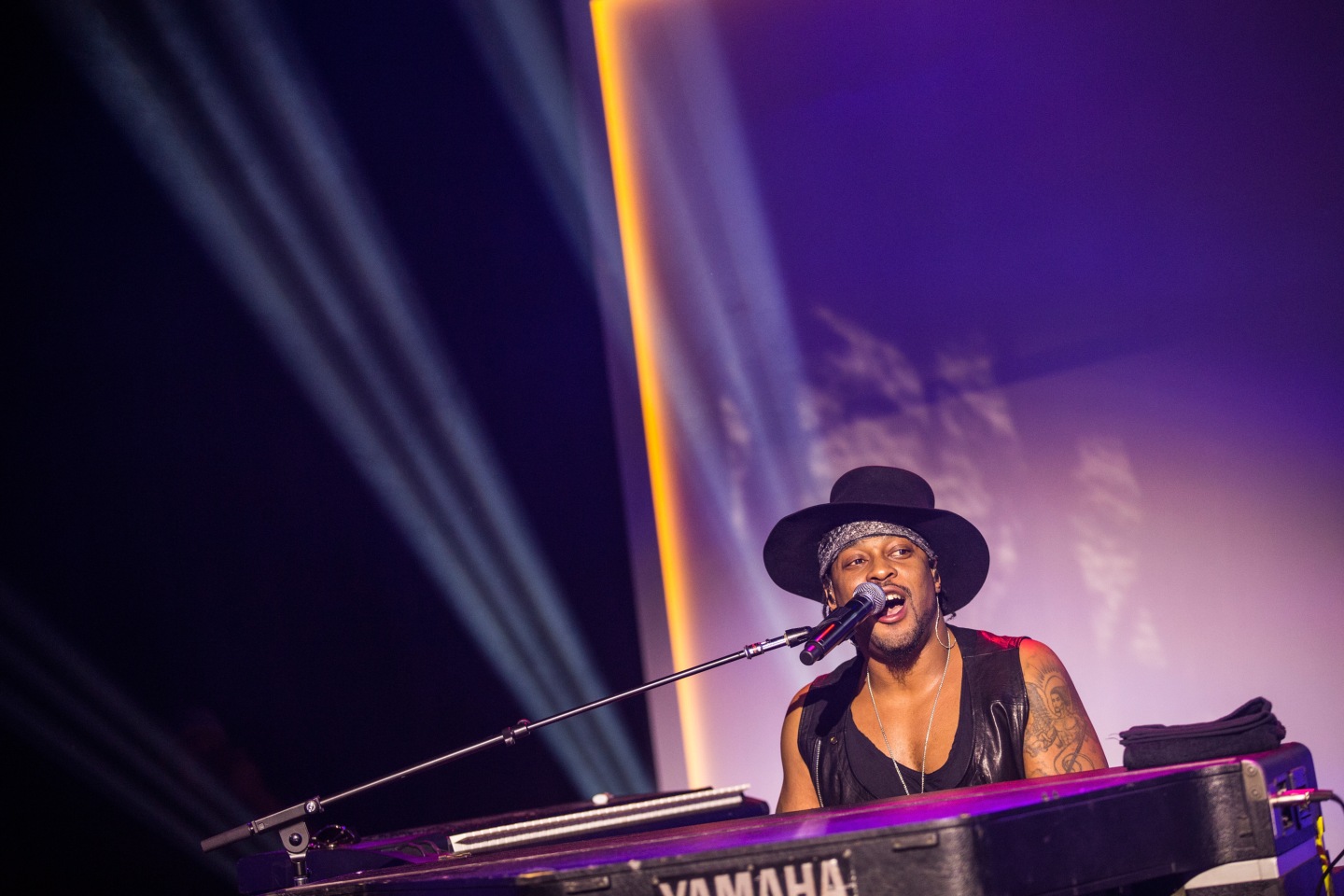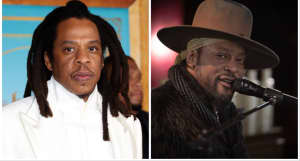 Getty Images / Andrew Burton
Getty Images / Andrew Burton
As legend has it, James Brown used to fine his band members every time they messed up. If you missed a note, showed up late, or didn’t have your costume ready, it’d cost you—maybe five dollars, maybe ten, but almost certainly a public disciplining. It sounds cruel, outmoded, and abusive, like schoolteachers rapping students over the knuckles, but it’s how he earned his reputation as a very flawed human who emerged as a very flawless showman night after night: the hardest-working entertainer in the biz, a perfect performer, the most precise bandleader in popular music, etc.
James Brown is who I thought of as I watched D’Angelo hop, bop, and praise-dance his way across the stage at Forest Hills Stadium in Queens on Sunday night. As he moved from instrument to instrument, commanding both the rapt audience and his excellent band, The Vanguard, he was the James Brown of the shit, turning familiar notes, melodies, and grooves into full-bodied, three-dimensional pieces. The difference, though, is that where Brown’s chief quality was steel-bladed perfection, D’Angelo’s is tenderness. When he coaxes ninety minutes of free-flowing music from his band, and in turn pure devotion from his fans, it’s with a loving touch, not the hanging threat of punishment.
Though his debut album Brown Sugar was released in 1995—and he was thought to have peaked with Voodoo, the 2000 album so good it took him 15 years to follow it up—it looks more and more like D’Angelo is only now beginning to carve out what will prove to be his enduring legacy, 20 years in. Throughout his performance Sunday night, as he played songs from Black Messiah and older singles from his catalog, he was the ultimate bandleader, appearing more confident, energized, and thrilled than we’ve seen him in years. When I think of an early comeback show I attended in London in 2012, back when his third album was a purely mythical proposition, it feels like watching a completely different person. He’s too talented to have ever lost his singing chops, but it’s clear he’s finally found his voice.
This past weekend, the New York Times published a conversation between D’Angelo and Bobby Seale, in which the musician and the former Black Panther Party leader talked, among other things, about the need for art to drive activism to galvanize people towards action while still yet offering them comfort from the world. In Queens, he dedicated a rousing, extended performance of “The Charade” to Eric Garner, Michael Brown, and the victims of Emanuel AME church shooting by asking audience members to lift fists into the sky, but when he sang “Really Love,” the gentle, soft-hearted number sounded as much like it was for those victims as it was for the love-drunk couples holding hands in the stadium. In the space between the charged up, explicit politics of “The Charade” and the light Spanish guitar of “Really Love,” D’Angelo is happy to exist. The sex-in-a-bottle nature of "Untitled (How Does It Feel?)" isn't a threat to his totality if it can exist alongside "1000 Deaths," a Fred Hampton-sampling protest song.
Like James Brown, whose experiences with social activism were many and messy, D’Angelo is searching for his own resounding I’m Black And I’m Proud moment. “Now more than ever is the need to sing about it and to write songs about it,” he told Seale. “And no one’s doing it. There’s only a chosen couple of people.” D'Angelo is clearly among them, embodying what Beyoncé called “the DNA of black music," as Brown did decades before him.
